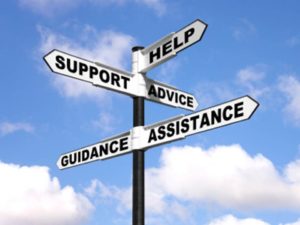
Road to Recovery – Gloucester Police Department Paves the Way
Insight Article by Jillian Lombardi
Significant national attention has been drawn to a local response to the widespread problem of opioid addiction and the rising numbers of opioid overdoses. In June of 2015, Gloucester, Massachusetts Police Chief Leonard Campanello began the Angel program by initiating a public post on Facebook to give addicts a chance at treatment without facing arrest if they would come to the town’s police station and seek help through the program.
Small town Chief Campanello’s post from last spring, offering heroin users an alternative to prison, was immediately shared more than 30,000 times and viewed by 2.4 million people. The post went viral so quickly that roughly 40 percent of Angel program participants are from the Gloucester area and the rest come from all over the country.
A year later, there have now been over 450 participants of the Gloucester Angel program which was created, coordinated, and implemented by the town’s police department. The program was made possible through the police department’s collaboration with healthcare providers for treatment including: Lahey Health – its Addison Gilbert Hospital and other treatment facilities, as well as Worcester-based Spectrum Health Systems. Chief Campanello and his officers developed their own database of treatment sites, which they call relentlessly until an open bed for each participant needing treatment is secured. The “angel” portion of the program includes pairing addicts with community volunteers who accompany them through the difficult times during treatment and recovery.
First Angel Program Participant Speaks Out
The Chief has made it clear any addicts in his program are always welcomed back, with no questions asked. Steve Lesnikoski was the first of 450 participants in the Angel Program. Lesnikoski went in and out of the program twice, has been clean for 10 months, and is now living with three other recovering addicts in Boston. In a recently published article by Allied News, Lesnikoski explained, “I think of where I was last year, where I am now, and I want people to know how revolutionary this is. I really have hope.”
Just over a year ago, Lesnikoski was confronted with a heroin addiction leaving him homeless and alone on the streets of San Jose, California when he realized he had no other choice but to seek help. He attempted to get into treatment centers throughout the state of California and found no available beds. With little hope left, he stumbled upon Chief Campanello’s Facebook post inviting opiate addicts to their program without being at risk for arrest or prosecution. A day later, Lesnikoski connected with a local Gloucester woman through the post, who covered the cost of his airfare to Boston and arranged his pickup from the airport into the town’s police department. After almost a full year of being clean, Lesnikoski is looking for a permanent job in human services because of the experiences and adversity he’s been through.

Birth of the Angel Program
Chief Campanello’s compassion to help stemmed from when he worked undercover in the narcotics unit of his hometown’s police force for seven years. He met a boy named Erik whose parents were heroin addicts. Erik was using by age 12 and died by age 19. After arresting Erik a dozen times, “We thought things like ‘Erik needs help,'” he said. “But there were no avenues for that, especially through the police force. It wasn’t our responsibility.”
Last spring, the Gloucester Angel program grew out of a town forum discussion on the rising heroin crisis. Four people had died of overdoses in the first three months of 2015; more than had died in all of 2014. Residents said they wanted addicts treated with compassion.
On average, Gloucester’s police department reportedly spends $55 for each addict it helps get into treatment, versus the cost of arresting, processing, and holding an addict which can run upwards of $200 per day.
Program Influencing Change in Other Agencies and Law
With this “angel” program displaying a great representation of police promoting public safety, Massachusetts state representatives have been influenced to introduce bills in pursuing a statewide approach to put treatment ahead of prosecution. These bills have been put together to enhance the efforts to stop the opioid epidemic.
From what began as an experiment, a bill has now been proposed to the Legislature’s Judiciary Committee, aiming to turn Massachusetts police stations into places where addicts can seek guidance.
Because the opioid addiction has become a critical and national public health issue, the “angel” initiative has become a countrywide model with over 60 police departments in 17 states following Gloucester’s direction, and more than 100 preparing to launch programs. In Massachusetts, over 20 other police departments have similar initiatives in motion.
Chief Campanello said the program, which operates around the clock, “is about a community’s journey helping one another, a humanitarian effort that they wanted their Police Department to reflect.” The Police Assisted Addiction and Recovery Initiative (PAARI) was formed as a nonprofit organization with the mission to support the Gloucester addiction initiative and to aid other police departments in implementing similar programs to take direct action against the disease of drug addiction in their communities. PAARI was created to bridge the gap between police departments and opiate addicts seeking recovery.
The PAARI website includes a main section for police to encourage and aid police with resources, how to start a police department-based opiate outreach program, and information about how to join the initiative. Each week the initiative sees two to three police agencies join the partnership throughout the country. In February of this year, the Groton Town Police Department and Groton City Police Department became the first Connecticut police agencies to partner with PAARI to expand their own Groton Addiction Assistance Initiative, which was influenced by the Gloucester Angel program.
The Town and City of Groton Police Departments began their similar initiative during the fall of last year in reaction to their town’s reported 18 overdoses and 4 deaths associated with heroin. In just the first two months of a partnership Groton police established with a local group called Community Speaks Out, 15 people were placed into recovery programs.
The Regional Community Enhancement Task Force of Southeastern, Connecticut was formed in reaction to the addiction epidemic in early February. The first meeting for the task force included police chiefs from Groton Town, Groton City, Waterford, Norwich, Ledyard and New London, along with representatives from East Lyme, Montville and the Connecticut State Police. The task force has been a part of multiple meetings with state senators to express their wish to see more Federal money committed to the problem, and to voice their hope for further local support from agencies like the DEA and ATF.
Looking Ahead
In 1999, there were more than twice as many motor vehicle deaths as fatal drug overdoses – by 2014, the numbers reversed, with almost 40 percent more deaths from overdoses than car crashes. According to statistics released by Connecticut’s Office of the Chief Medical Examiner, heroin deaths increased by 27 percent from 2014 to 2015. In Connecticut there were 258 heroin involved deaths in 2013, compared with 327 in 2014, and a reported 415 heroin related deaths in 2015.
“This has the potential to be a disruptive innovation that changes the picture of how we deal with the disease,” said David Rosenbloom, a professor of health policy and management at the Boston University School of Public Health, who has been analyzing data for Gloucester. “And it is a measure of the widespread desperation to move beyond the war on drugs that so many have been willing to try it.”
Encouraging individuals to kick the heroin habit through treatment with the support of police departments, instead of threatening to lock them up, makes the program unique because it treats struggling addicts as having a medical condition rather than making them criminals for becoming involved with a serious epidemic.
